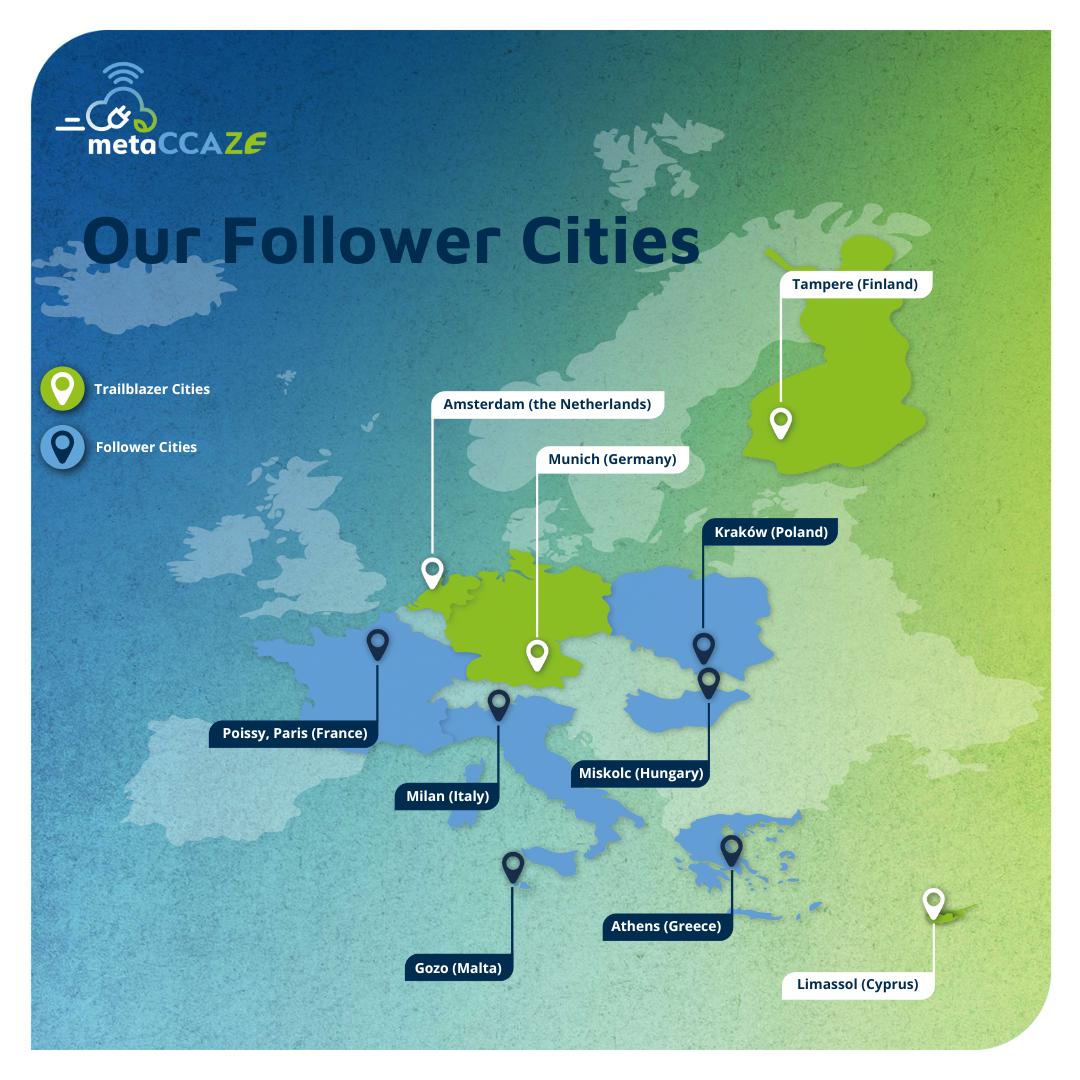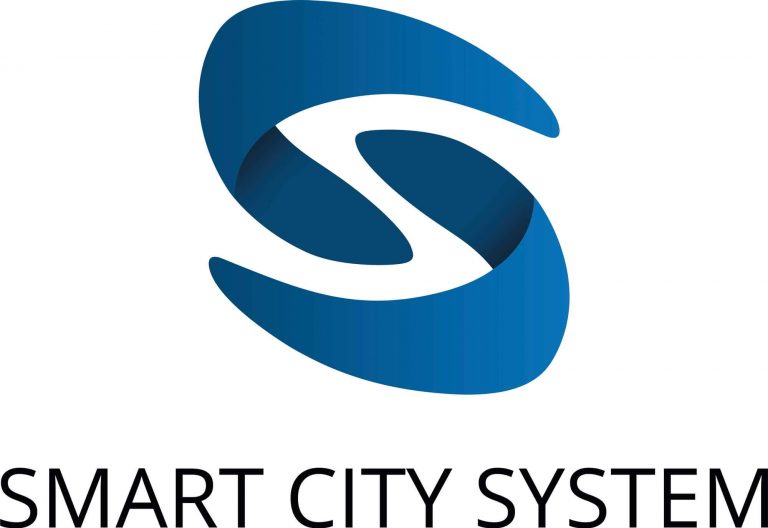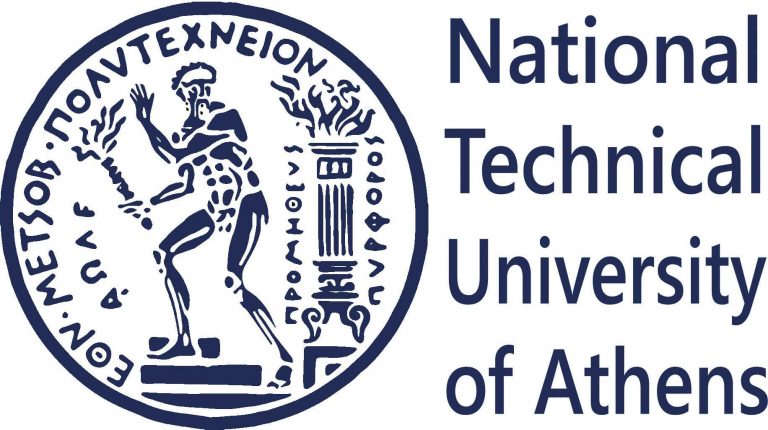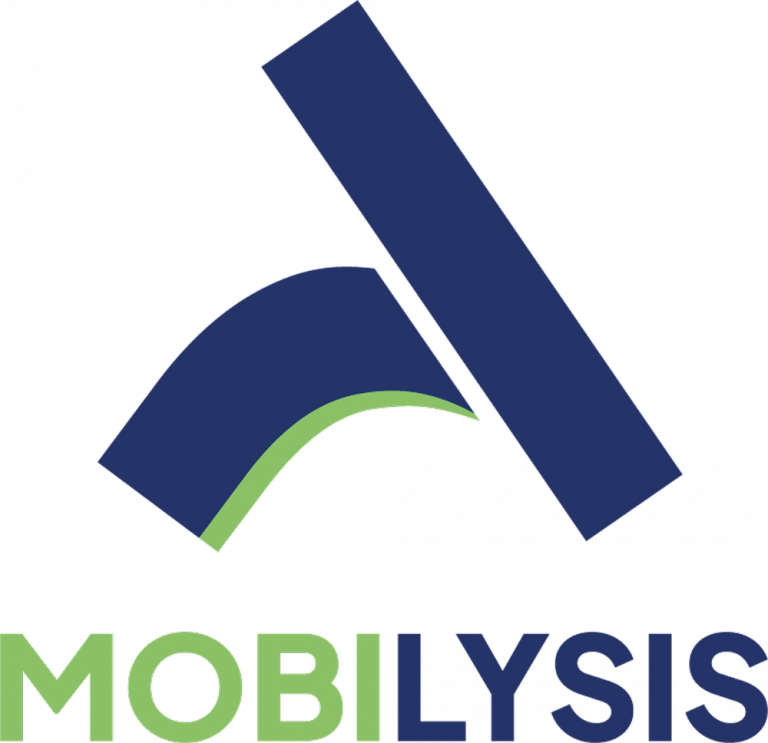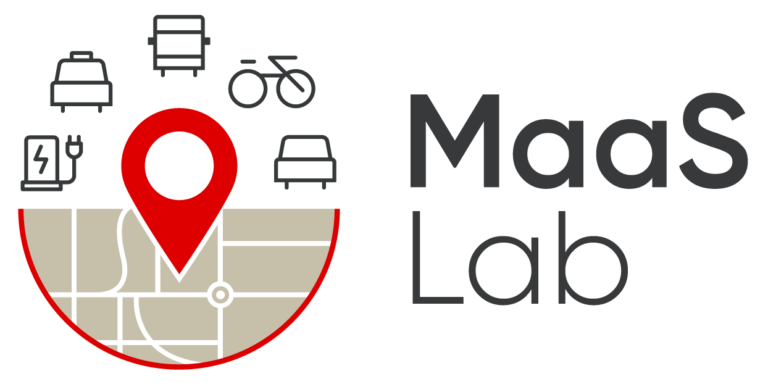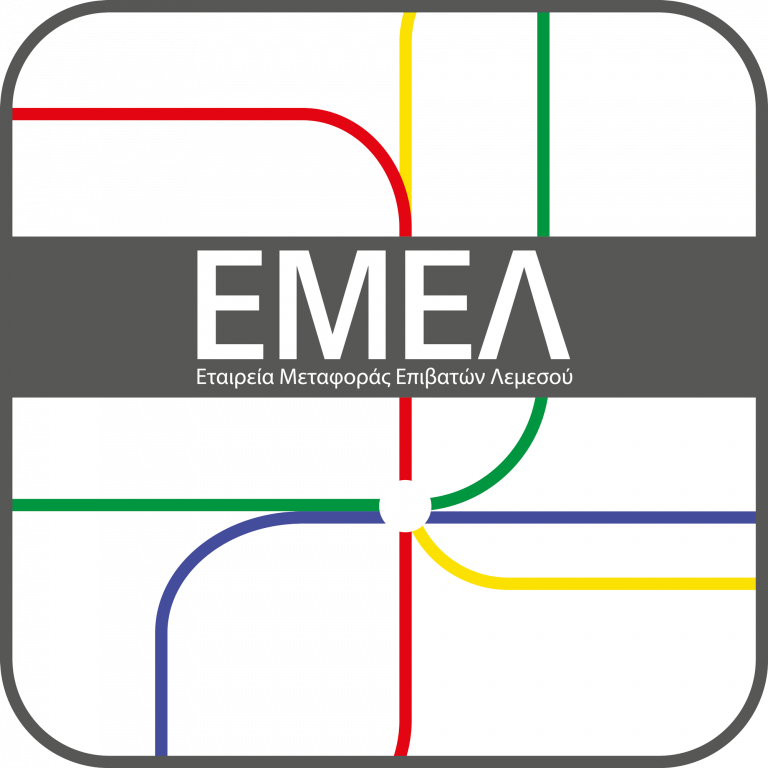Athens, Kraków, Gozo, Milan, Miskolc, and Poissy, Yvelines in the Paris Region are Follower Cities in the metaCCAZE project. By learning from the mobility services designed in the Trailblazer Cities, each is tailoring and planning to implement smart, shared, zero-emission mobility solutions to meet their local needs—bringing the project’s vision of climate-neutral urban mobility one step closer to reality across Europe.
Athens: Smart Integration of Electric Buses In Athens, the transition to cleaner transport is well underway. With over 200 newly acquired electric buses, the city is employing operations research and AI methods to optimise schedules and driver allocations. Parallel efforts include strategic planning for e-charging infrastructure, ensuring the right types of chargers are installed in optimal locations to support both fast and slow charging. These advancements are guided by the National Technical University of Athens and the Athens Urban Transport Organisation.
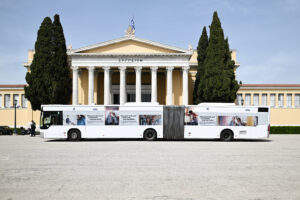
Gozo: Malta’s First Autonomous E-Bus Pilot In Gozo, Malta, the focus is on piloting the island nation’s first autonomous, zero-emission e-bus service. This on-demand transport solution is tailored to the needs of both residents and tourists. An 8-month real-world pilot will evaluate scalability, accessibility, and user satisfaction, setting a precedent for wider adoption of smart public transport in Malta.
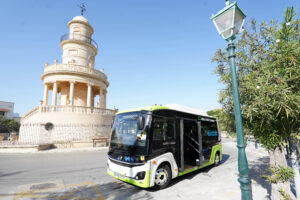
Kraków: Building a Multimodal Hub Kraków is transforming its Grzegórzki train station into a vibrant multimodal hub. The project integrates e-bikes, cargo bikes, and the city’s LajkBike sharing system, enhancing last-mile delivery and mobility for residents. Innovative drone monitoring is being used to gather demand data, helping optimise the infrastructure and improve city-wide sustainable transport planning.
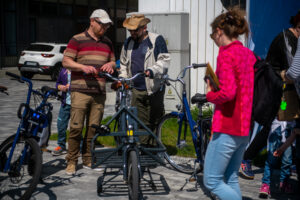
Milan: E-Pods for First and Last Mile Mobility Milan is rolling out a 6-month pilot of electric modular vehicles—known as e-pods—for suburban areas. These compact, connectable vehicles will be integrated into the public transport network to support first and last-mile travel. The project also includes advancing autonomous functions such as docking, undocking, and parking, alongside regulatory work to prepare for broader deployment.
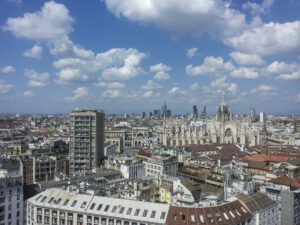
Miskolc: Smarter Connections with E-Scooters Miskolc is prioritising multimodal and digital innovation to make transport more sustainable and user-friendly. At the Tapolca junction, a new mobility hub will connect transport options like e-scooters with public transport. An AI-powered route planner will help users optimise their journeys based on time, cost, CO₂ emissions, and health benefits.
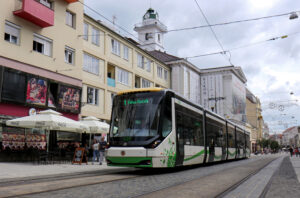
Poissy, Yvelines (Paris Region): Smart Infrastructure for Urban Flow In Poissy, cutting-edge technologies are turning roads into smart corridors. V2X (Vehicle-to-Everything) communication is being deployed to enable real-time traffic monitoring and intelligent management of intersections and parking. Additionally, shared electric and autonomous vehicle services are being developed to improve hub connectivity and reduce congestion in the busy Paris Region suburb.

Together, these six cities are creating a ripple effect, demonstrating that innovation can be local, inclusive, and tailored—without sacrificing ambition. Their success stories will provide scalable models for other cities, like our metaCCAZE Observer Cities.
